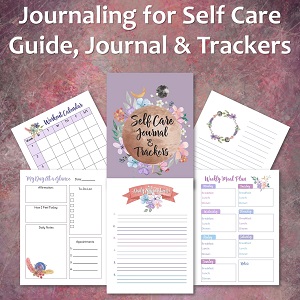 Vitamins and minerals are necessary for our bodies to function correctly. Nutrient deficiencies in women create a cascade of negative health effects and play a key role in the development of diseases such as diabetes, heart disease, and osteoporosis. It’s important to make sure you avoid nutrient deficiency by eating plenty of vitamin and mineral-rich foods and supplementing when needed.
Vitamins and minerals are necessary for our bodies to function correctly. Nutrient deficiencies in women create a cascade of negative health effects and play a key role in the development of diseases such as diabetes, heart disease, and osteoporosis. It’s important to make sure you avoid nutrient deficiency by eating plenty of vitamin and mineral-rich foods and supplementing when needed.
Variables such as food allergies, special diets, and age determine what vitamins and minerals are most critical to you, but there are a few key vitamins and minerals that every woman needs for optimum health:
The Essential Vitamins
There are a number of different vitamins that are crucial for women to be taking on a regular basis, beginning with the B Complex vitamins, as well as vitamins like K and D. Here is an overview of vitamins women should be taking preferably on a daily basis, or getting these nutrients through natural food sources:
B Complex Vitamins
The B Complex is a group of eight vitamins that work together as a team to support several critical roles in the body. B vitamins are known for their aid in the production of red blood cells, regulation of cholesterol, the support of immune and nervous system functions, promotion of cell cellular growth, and the maintenance of healthy skin, hair,
and muscles.
Those who take B vitamins regularly will see the benefit of improved memory, lessened depression and anxiety, and a reduction in the symptoms associated with PMS.
B vitamin deficiencies are not that common, but those who find themselves under a lot of stress or who consume carb- and sugar-rich diets may have decreased levels. Some signs of a vitamin B deficiency include anemia, depression, fatigue, balance issues, memory problems, muscle cramps and weakness, tingling or numbness in the limbs, or mouth soreness.
Foods such as fish, dairy, beans, whole grains, and dark leafy greens are rich sources. B vitamins can be found in standalone supplements or as part of a multivitamin. It’s generally recommended to take a B supplement if you are a woman who is pregnant or breastfeeding or if you follow a vegan or vegetarian diet.
- Vitamin B1 (Thiamin) boosts the immune system and aids in cell creation. Found in whole grains, beans, spinach, kale, and peanuts.
- Vitamin B2 (Riboflavin) is important for the production of red blood cells. You can get it from milk, yogurt, eggs, almonds, Brussel sprouts, spinach, and wild rice.
- Vitamin B3 (Niacin) boots your good cholesterol, which in turn helps to lower the bad cholesterol. Niacin may help to treat acne. It can be found in milk, eggs, red meat, beans, green vegetables, and yeast.
- Vitamin B5 (Pantothenic Acid) helps to reduce the signs of aging. It’s also responsible for the production of sex hormones and stress-related hormones. Find it in yogurt, eggs, meat, legumes, and avocados.
- Vitamin B6 (Pyridoxine) helps to regulate levels of a particular amino acid associated with heart disease. It also plays an important role in sleep patterns and mood due to its ability to help the body produce certain neurotransmitters. Some studies suggest that B6 may be an effective anti-inflammatory. Chicken, turkey, salmon, tuna, lentils, sunflower seeds, and brown rice are just a few good food sources of vitamin B6.
- Vitamin B7 (Biotin) helps to support healthy hair, skin, and nails. Vitamin B may also help control glucose levels in people with diabetes. Vitamin B7 is a critical nutrient during pregnancy. It can be found in fish, pork, chicken, egg yolks, cauliflower, potatoes, and nuts.
- Vitamin B9 (Folate), also known as folic acid, is especially important for pregnant women as it supports fetal growth and helps to prevent neurological birth defects. Studies have shown that B9 can potentially curb depression and may serve as a preventative to memory loss. B9 can be found in abundance in leafy greens, beets, beans, milk, salmon, and root vegetables.
- Vitamin B12 (Cobalamin) is vital in the production of red blood cells. It works with vitamin B9 to help iron create hemoglobin. You can get it from fish, pork, beef, eggs, and dairy. Because B12 is derived only from animal sources, those who follow a vegetarian or vegan diet will probably find it necessary to take a supplement.
Vitamin D
Vitamin D, sometimes considered the Sunshine Vitamin, is a key component in the body’s ability to absorb calcium. Considered essential for bone health, vitamin D may lessen the likelihood of fractures and potentially prevent osteoporosis. In pregnant women, low vitamin D levels are linked to difficulties such as gestational diabetes and pre-eclampsia. Low vitamin D levels are also attributed to a higher risk of heart disease, high blood pressure, or diabetes.
Vitamin D deficiency occurs in both men and women and can be caused by any number of contributing factors. The deficiency is most common amongst certain high-risk groups such as women who use sunscreen, the elderly, people with darker skin tones, or those who live in polluted or urban areas.
Food sources that are rich in vitamin D include tuna, salmon, sardines, eggs, mushrooms, cod liver oil and fortified products such as milk and yogurt, soy products, and fortified cereals. Supplements are available and are typically recommended for everyone.
Vitamin K
Vitamin K is actually a group of compounds, derived mostly from leafy greens, that plays a critical role in the blood’s clotting mechanism. Vitamin K also plays a role in the binding of calcium in bones and other tissue. Osteoporosis is strongly associated with low levels of vitamin K, as is heart disease.
A vitamin K deficiency can cause symptoms such as a heavy menstrual flow, anemia, easy bruising, frequent nosebleeds and gum bleeding. Vitamin K deficiencies are not that common. You’re at a higher risk if you suffer from liver damage, an inflammatory bowel disease, cystic fibrosis, or if you are taking any form of anticoagulant.
The best natural food source of vitamin K is leafy green vegetables such as spinach and kale, but it can also be found in other foods such as beans and soybeans, broccoli, asparagus, strawberries, and meats. Because of its fat solubility, vitamin K is better absorbed when consumed with fats such as oil or butter.
Though supplements are available, because of their effect on coagulation, you’re generally not advised to take them unless directed to by your doctor.
Antioxidants to Include
Antioxidants are important protectors against the cell damage caused by harmful chemical compounds known as free radicals. Most researchers believe this damage to be an inciting factor in the development of many diseases. Research has also shown antioxidants to be a powerful treatment and preventative for the inflammatory symptoms of endometriosis.
Decades of research has suggested that a diet high in antioxidant-rich foods helps to protect against diseases, however, the use of supplements has not been found to provide the same benefits. More research is needed to understand why, but it’s best to try and get your antioxidants from natural sources.
Because each antioxidant serves a different purpose and generally isn’t interchangeable with one another, a varied diet of fruits and vegetables, both raw and cooked, is the key to ensuring that you intake the proper amounts of antioxidants.
Vitamin A
Vitamin A is a powerful antioxidant that boosts the immune system, promotes skin health and cellular regeneration, and helps prevent a host of chronic illnesses. Vitamin A is extremely important during embryonic development. Beta-carotene is the form of vitamin A that is found in plants and plays an important role in preventing age-related blindness.
Vitamin A deficiency is quite rare in the United States but is still common amongst those living in developing nations. Vitamin A deficiency greatly increases the severity of infections. The earliest sign of a vitamin A deficiency is difficulty or an inability to see in dark light, an early warning sign for a condition called xerophthalmia, which is a progressive disease that causes extreme dryness, inflammation, and tissue damage to the cornea.
Though it is available in supplements, vitamin A is found naturally is many foods. Cod liver oil is the most plentiful source, but it is also found in high concentrations in liver, ghee, red peppers, and sweet potatoes, just to name a few.
Vitamin C
Vitamin C (Ascorbic Acid) boots the immune system, fights against cancer, heart disease, and works with other antioxidants to protect against the effects of age-related macular degeneration. It’s a requirement for the biosynthesis of collagen — an essential component in the regeneration of skin, blood vessels, cartilage, tendons, and ligaments. Studies have shown that vitamin C alongside vitamin E may prevent pre-eclampsia in pregnant women.
Serious vitamin A deficiency is quite rare, though cigarette smoking and stress can both lead to lowered levels. The most common signs of a vitamin C deficiency include feelings of fatigue, muscular weakness, muscle and/or joint aches, rashes on the legs, or bleeding gums. Prolonged deficiency of vitamin A can lead to scurvy, a rare but severe disease.
Vitamin C is easily found in many natural food sources. Apples, berries, tomatoes, melons, red and green peppers, Brussel sprouts, cauliflower, and citrus are a few rich sources of vitamin C. Supplements are available as a standalone or as part of a multivitamin.
Vitamin E
Vitamin E is essential for the support of healthy skin and hair. It plays a critical role in helping to naturally balance hormonal levels, making it a powerful combatant to PMS symptoms by reducing anxiety, cramping, and cravings. According to at least one study, vitamin E appears to minimize some side effects of menopause, such as hot flashes.
Vitamin E can be found as a standalone supplement or as part of a multivitamin. There are quite a few foods that provide vitamin E. Nuts, seeds, leafy green vegetables, and vegetable-derived oils are the richest sources. Look to sunflower seeds, dry roasted almonds, peanut butter, or boiled spinach for high concentrations.
Critical Minerals
Minerals are micronutrients that are required by the body to perform necessary functions. Their role in a woman’s health is just as important as that of vitamins. Here are a few vitally important minerals:
Calcium
Calcium is well-known for its importance in bone health, but it also serves important roles in regulating blood pressure and heartbeat, lowing cholesterol levels, hormone secretion, and helping with muscular function. Alongside other key nutrients, calcium helps to protect against diabetes, heart disease, and osteoporosis.
Calcium deficiency is extremely common, possibly due to the requirement of vitamin D and magnesium for its absorption in the body. There are a wide range of symptoms associated with calcium deficiency. Fainting, muscle cramps in the legs and back, difficulty swallowing, tingling or numbness of the mouth or extremities are just a few.
Prolonged calcium deficiency can lead to the development of osteoporosis or rickets.
Foods that are rich in this electrolyte include raw milk, yogurt or kefir, leafy greens, broccoli, and beans. You can find calcium in supplements and multivitamins. Remember to be sure that you are also getting adequate amounts of magnesium and vitamin D to ensure that the body can absorb the calcium.
Iodine
Iodine is an extremely important nutrient for women. It promotes healthy ovulation and reduces estrogen levels — useful for those suffering from estrogen excess symptoms such as ovarian cysts, breast pain, or extreme PMS symptoms. Iodine is also a critical component in the production and regulation of thyroid hormones.
The most common sign of deficiency is breast tenderness. Women who are pregnant or who are between the ages of 40 to 49 are the most at-risk for iodine deficiency. Vegans and vegetarians are also likely to experience this deficiency.
Seaweed, codfish, yogurt, iodized salt, and milk are good natural food sources of iodine. Many multivitamins contain iodine in the form of sodium iodide or potassium iodide. You can also find it in food-based supplements containing kelp.
Iron
Iron is critical to the body’s ability to create hemoglobin and transport oxygen within the blood throughout the body. Iron deficiency is one of the most common nutritional deficiencies globally, and women are particularly at risk, especially those who are pregnant or menstruating.
Animal proteins such as eggs, fish, and poultry are the richest food sources of iron. Beans and leafy green vegetables are also good options. Supplements are available and are suggested for women who are pregnant.
Magnesium
Magnesium is important for many processes in a woman’s body. Magnesium is just as important as calcium in the support of healthy bones. It also plays a crucial role metabolic regulation and the synthesis of proteins. Taking magnesium provides a boost to the immune system.
Magnesium deficiency can show itself in the form of irregular heartbeat, anxiety, difficulty sleeping, constipation, or muscle cramps.
Many mineral supplements and multivitamins contain magnesium. The best food sources of magnesium are almonds, cashews, peanuts, spinach, legumes such as black beans and edamame, and whole grains.




